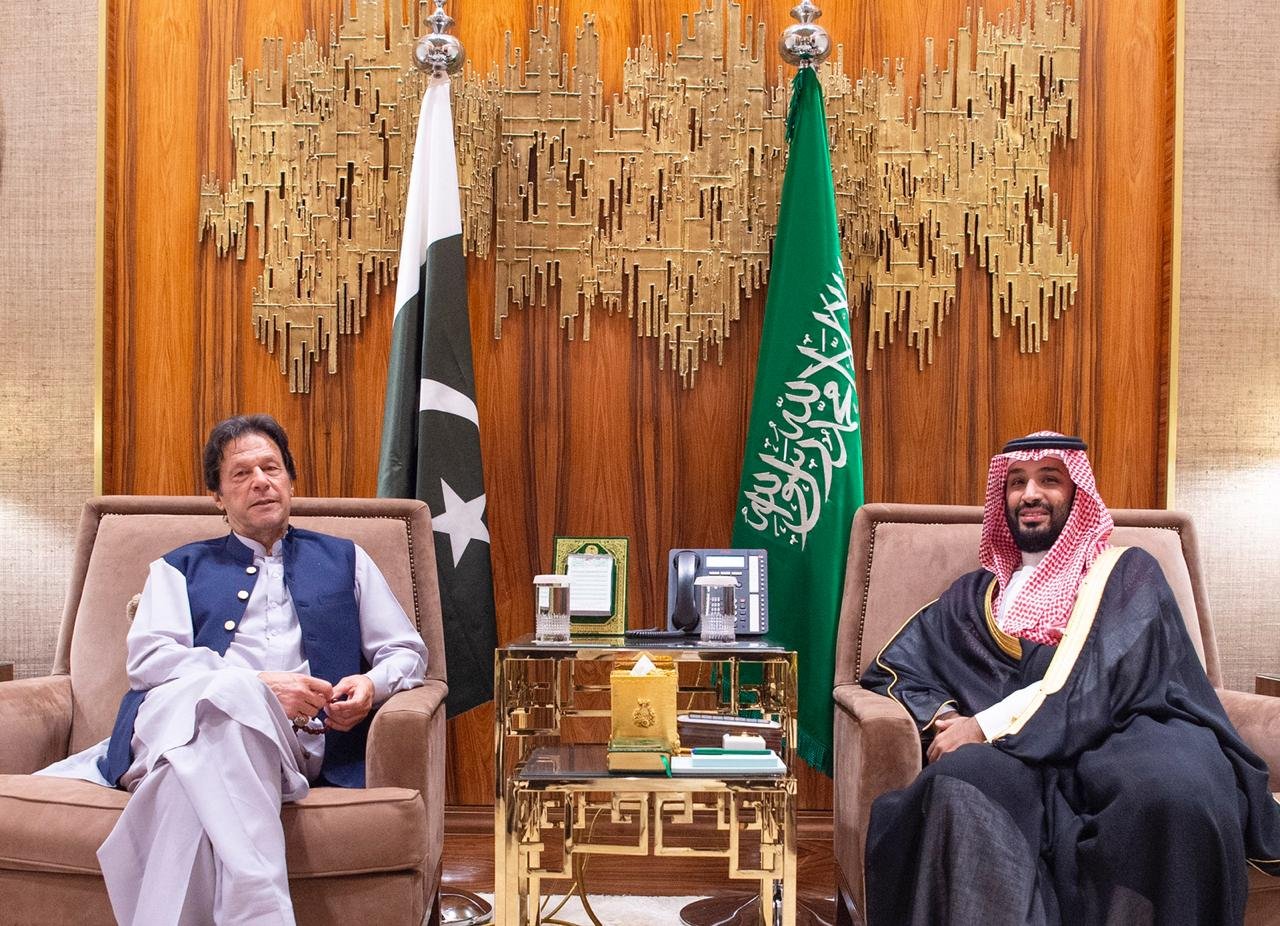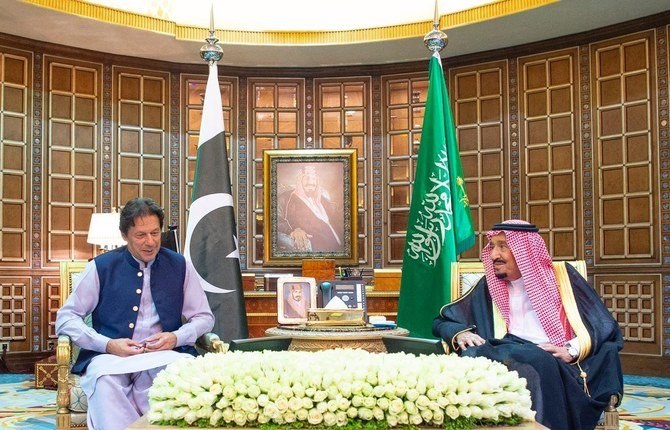ISLAMABAD: Prime Minister Imran Khan returned back to Pakistan after his day-long official visit to Saudi Arabia where he met with the Saudi leadership, the prime minister’s office confirmed on Wednesday.
The prime minister met with King Salman bin Abdulaziz on Tuesday. “During the meeting, the two leaders discussed bilateral relations, peace and security in the region, and political developments in the world,” the foreign office said in a statement after the meeting. “They also discussed enhancing bilateral cooperation,” the statement added.
The foreign office said, “the prime minister stressed the need to resolve disputes and conflicts through political and diplomatic efforts for regional peace and stability.”
PM Khan also held a separate meeting with Crown Prince Mohammed bin Salman during his visit.
“The Prime Minister reiterated the resolve to further deepen bilateral trade, cooperation in the energy and investment fields, and people-to-people contacts,” the statement read.
Referring to the evolving situation in the Gulf, the Prime Minister stressed the importance of avoidance of military conflict and the constructive engagement of all parties. The Prime Minister conveyed Pakistan’s readiness to facilitate efforts for de-escalation of tensions and resolution of differences and disputes through peaceful means.

Prime Minister Imran Khan, left, with Saudi Crown Prince Mohammed Bin Salman in Riyadh on Oct. 15, 2019. (SPA)
“The Saudi leadership appreciated serious efforts of Prime Minister Imran Khan toward promoting peace and stability in the region and the impact of this initiative on de-escalation of tensions,” the foreign office said, noting that the exchange of views in this regard was comprehensive and constructive.
“Noting the complexity of the issues and recognizing the challenges involved, the two sides agreed to remain engaged and consult closely to take the process forward.”
The prime minister also apprised the Saudi ruler of the situation in Kashmir.
Following his visit to Iran on 13 October, Khan was scheduled to visit Saudi Arabia today, as “part of his initiative for peace and security in the region,” the foreign office earlier said.
The Pakistani delegation accompanying premier Khan during his Riyadh visit comprises Foreign Minister Shah Mahmood Qureshi, special assistant to prime minister on overseas Pakistanis, Zulfiqar Bukhari, and other senior officials, the foreign office said in its statement.
During his Tehran visit, the Pakistani premier reiterated that his country was ready to play the role of a “facilitator and not a mediator” to ease tensions in the region. He also said that his meeting with the Iranian leadership made him hopeful that peace will prevail in the Arabian Gulf.
Pakistani and Saudi authorities have had several high-level interactions since Khan won the general elections in his country last year and assumed the top political office in Pakistan.
He also chose the Kingdom for his first foreign visit and developed a strong relationship with the king and Crown Prince Mohammed bin Salman.
Meanwhile, Iran has remained under intense pressure and scrutiny from major world powers, including the United States, over its highly controversial nuclear program.
The United States also blamed Tehran for an attack last month on the world’s biggest crude oil processing facility in Saudi Arabia which threatened the world’s energy security.
Pakistan’s foreign office on Friday rejected media reports that Saudi Arabia had asked Pakistan to play a mediatory role to defuse tensions with Iran.
“These reports are without any basis as no such letter or message was conveyed, nor has Saudi Arabia asked Pakistan to play any mediatory role with Iran,” the foreign office said.














